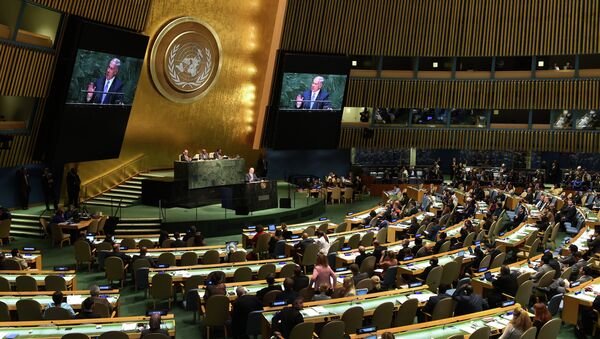NEW YORK (Sputnik) — On July 14, Iran, Russia, the United States, China, Britain, France and Germany signed a historic deal guaranteeing the peaceful nature of Tehran's nuclear activities in exchange for sanctions relief.
The same day, Iran’s Atomic Energy Organization (AEOI) and the International Atomic Energy Agency (IAEA) signed a roadmap agreement for the clarification of possible military aspects of Iran's past and present nuclear activities, including at the Parchin military facility.
"The nuclear deal, which is a brilliant example of victory over war, has managed to disperse the clouds of hostility and perhaps even the specter of another war and extensive tensions from the Middle East," Rouhani said in an address to the UN General Assembly.
Supporters of the deal praised the breakthrough talks of the world powers and Iran, expressing hope that it would contribute to the peace and stability of the region and enhance dialogue among the states.
"The deal can and should herald a new era and lead to positive outcomes regarding the establishment of sustainable peace and stability in the region."
Opponents of the agreement have argued that Iran is likely to covertly develop nuclear capabilities while sanctions relief will fund Tehran’s alleged destabilizing activities in the Middle East.


